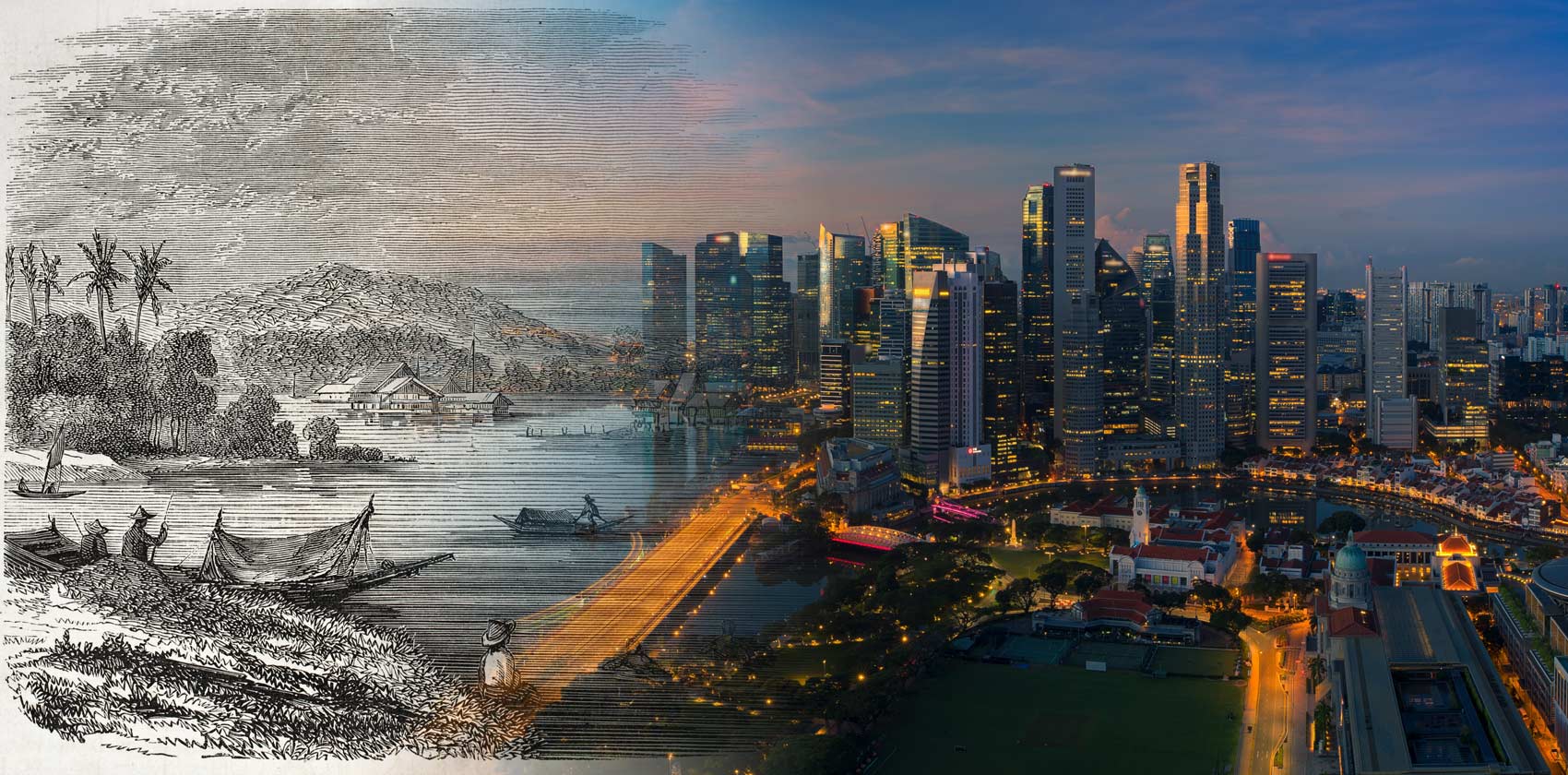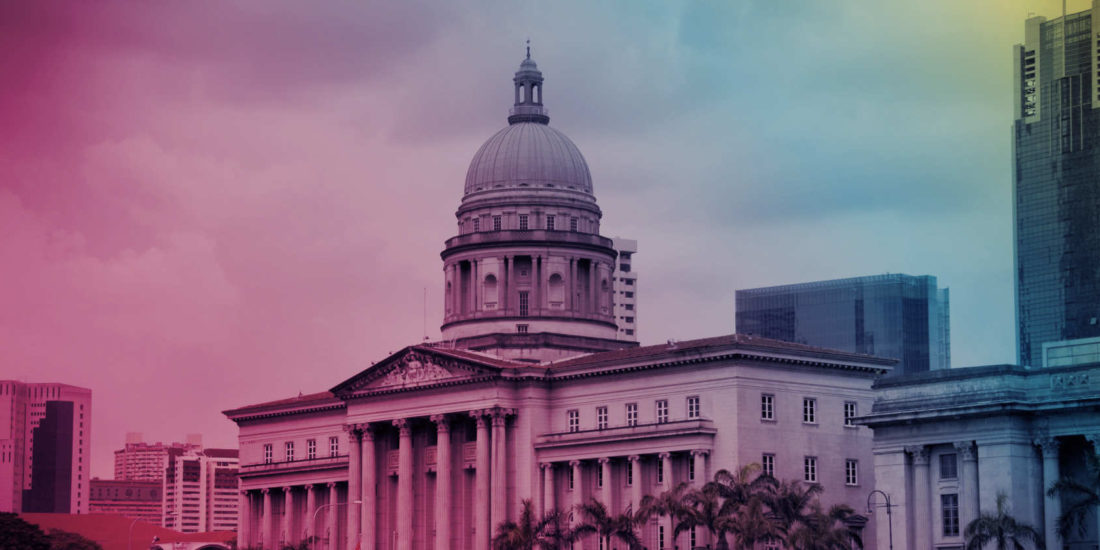
The British Rule of Singapore: An Evaluation
This article explores the positives and negatives that have resulted from the British rule of Singapore.
We are commemorating the 200th anniversary of the founding of Singapore by the British. It is fair to say that, if Raffles had not established a trading post for the East India Company in 1819, we probably won’t have the Singapore of today.
The British High Commissioner, Scott Wightman and I, have co-edited a book entitled, 200 Years of Singapore and the United Kingdom. It was launched on 29 January 2019, the exact day on which Raffles had landed in Singapore.
In my introduction to the book, I noted that the British had ruled Singapore for a total of 142.5 years. I said that I judged British rule as 60 per cent good and 40 per cent bad. I will try, in this essay, to explain how I came to that conclusion. I will start with my negative list.
The Bad
First, the colonial society of Singapore was racist and hierarchical. The whites were first class citizens, the Eurasians were second class citizens and the rest of us were third class citizens. Racism permeated the civil service, the police force, sports and even the social clubs. Clubs like the Cricket Club and the Tanglin Club were exclusively for the whites.
Second, Singapore was ruled by an un-elected Governor who had near absolute power. There were no democracy and no human rights. Any one who dared to criticise the colonial masters or who were suspected of disloyalty, would be punished. One of the worst forms of punishment was banishment. Many Chinese intellectuals, who had not been convicted by any court of any offence, were, nevertheless, banished to China. There was also no freedom of the press. Two essays I had written for the magazine of my school, Raffles Institution, were banned by the Ministry of Education.
Third, the economy was based on the port, services and servicing the British armed forces and their families. The British did not encourage manufacturing in order not to compete with exports from the United Kingdom. Fortunately, the people of Singapore were very entrepreneurial. They started business, big and small, and offered jobs to the many immigrants who came to Singapore to seek a better life.
Fourth, the colonial administration provided minimum social services to the local population. To fill the gap, wealthy individuals, clan associations, community and religious groups, opened schools, hospitals, free clinics, orphanages and other welfare institutions. There was a vibrant civil society during colonial rule.
Fifth, the law and order situation was very bad. The people lived in fear of gangsters and secret societies. The British were unable to control and suppress them. There was also a gap between the people and the police. The people did not trust the police. Part of the problem was that all the officers were British, who were unable to speak the local languages and to connect with the people they were supposed to protect.
Sixth, the British were arrogant and complacent about the security of Singapore. They called Singapore an invincible fortress. They assured the people of Singapore that they need not fear the invasion of Japan. When the invading Japanese army came down the peninsula, by bicycles, instead of by sea, the British defenders were shocked and demoralised. Although the defenders outnumbered the invaders, the invaders won. Sir Winston Churchill described the fall of Singapore as the worst defeat suffered by the British Army.
The Good
First, compared to the other colonial rules of Southeast Asia, the British were the least bad. In spite of all its faults, the British did leave Singapore with positive legacy. I will highlight some of the most important.
Second, the British left us with free port. Being a free port was very important in the early years of Singapore, because we were competing with other ports in the region which were not free. Some of them would not allow ships of other nationalities to use their ports. All of them imposed levy fees and taxes on ships entering their ports. Singapore is, to this day, a free port. This is one of the secrets of our success.
Third, the British taught us to believe in and to practise free trade. Singapore has adhered to this tradition and it has brought enormous benefits to our economy and our people. Free trade has lifted among developing countries out of poverty. There is, however, a constant struggle between countries which champion free trade and those which champion protectionism.
Fourth, the British operated Singapore as an open economy, welcoming investment from all sources and welcoming traders of all nations. This legacy has served us well. Singapore’s open economy and our philosophy of welcoming the world to Singapore is another secret of our success.
Fifth, we inherited from the British our belief in education, science and modernity. This brought about an important mindset change. We believe in facts, science, and rationality. We welcome change. We are not afraid of technology, no matter how disruptive.
Sixth, we inherited the common law from the British. We also imbibed from the British a strong belief in the rule of law. The rule of law has become one of the hallmarks of Singapore. The world respects Singapore because of our strong adherence to the rule of law, domestically, as well as in our foreign policy.
Seventh, we inherited the English language from the British. The English language has become the international language of the world. Our proficiency in the English language has given us a comparative advantage over other countries. I am sure this is one factor which attract many companies to invest here or to set up their regional offices here.
Eighth, the British set up our public service. Although Singaporeans were not allowed to join the upper echelons of the civil service until the 1950s, independent Singapore was able to build up on what the British had left us. We have, today, one of the world’s best and cleanest civil services.
Conclusion
I have given above eight positive and six negative aspects of British rule. On balance, I still think it was 60 per cent good and 40 per cent bad. One of the worst consequences of colonialism is that we continue to have a neo-colonial complex. Although Singapore has been enormously successful over the past 54 years, we must remain humble. We must continue to learn best practices from the world, the UK included.






